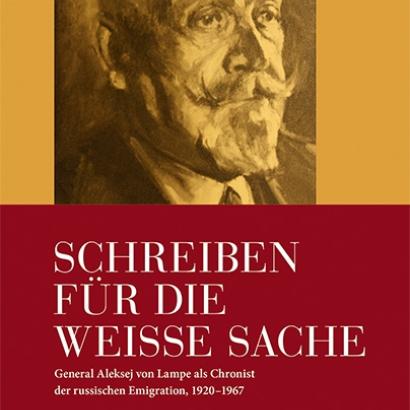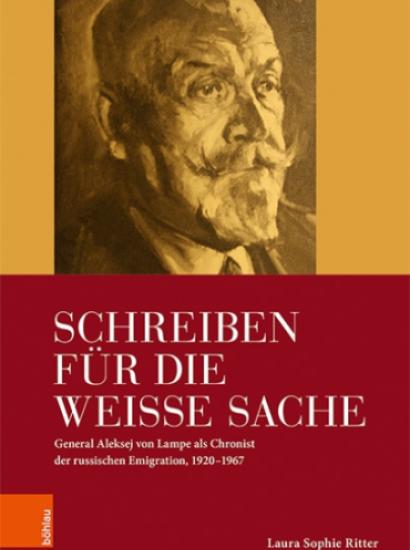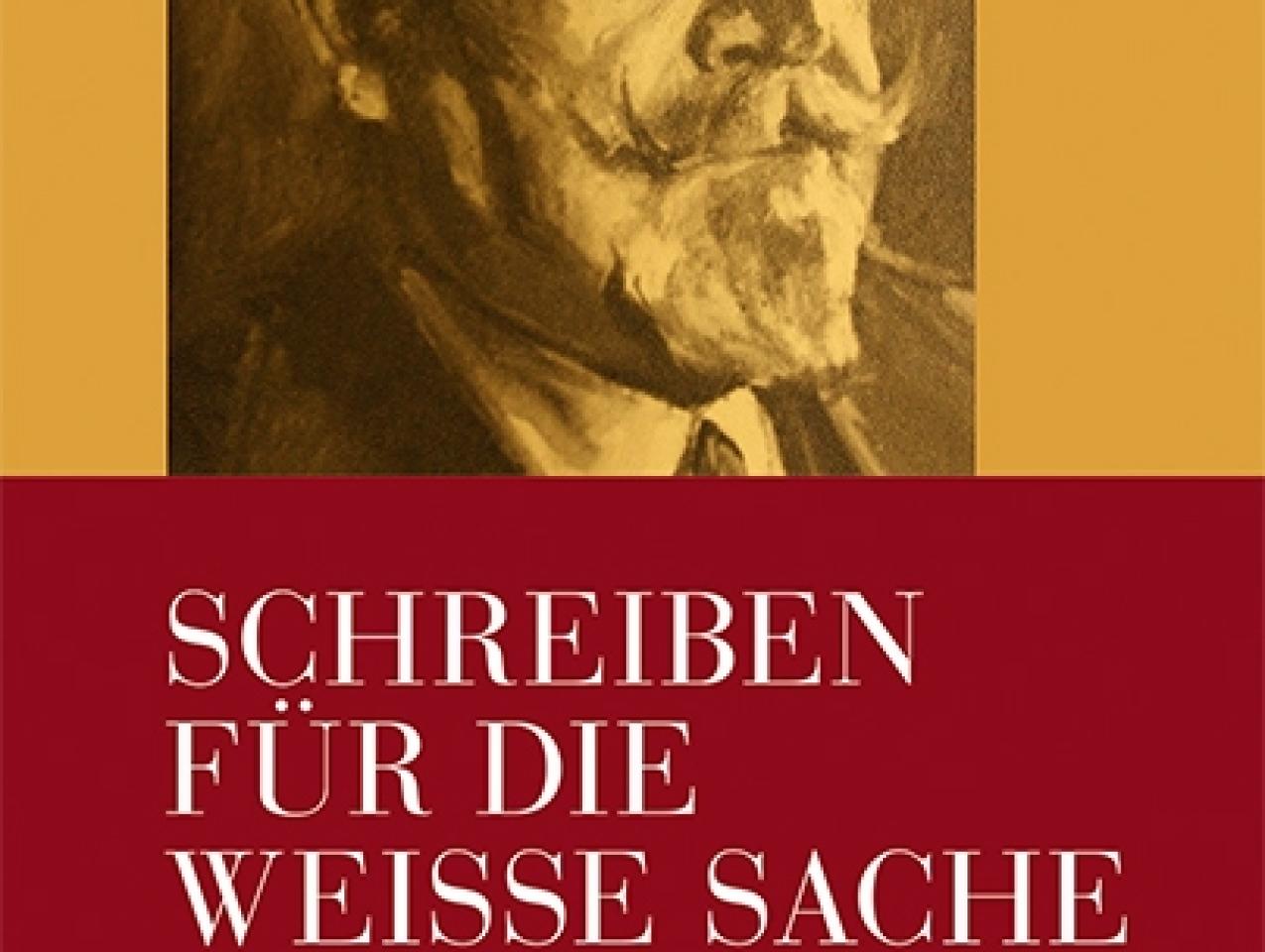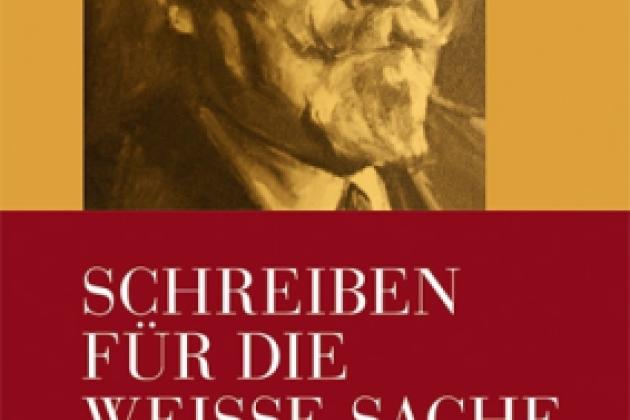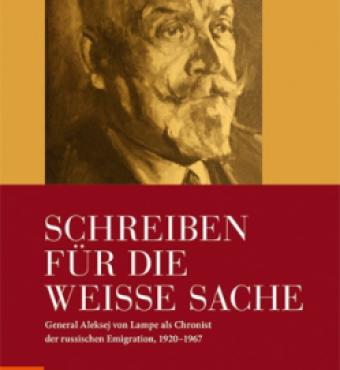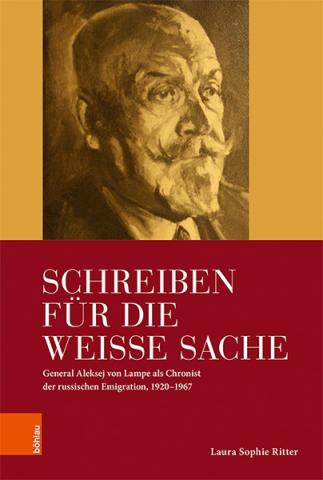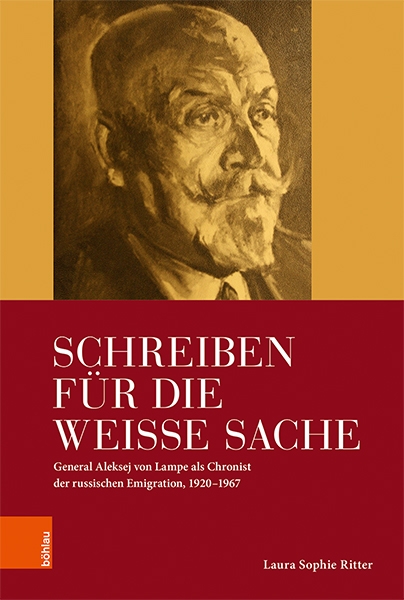
Dr. Laura Ritter, coordinator of the Basel Graduate School of History in Switzerland, has just published a new study of General Aleksei von Lampe, based largely on the general’s papers in the Hoover Institution Library & Archives. This study, entitled Schreiben für die Weiße Sache. General Aleksej von Lampe als Chronist der russischen Emigration, 1920–1967 [Writing for the White cause: General Aleksei von Lampe as chronicler of the Russian emigration, 1920–1967] (Köln: Böhlau Verlag, 2019), is part of the series Imperial Subjects: Autobiography and Biography in an Imperial Context, which is an apt description of the subject. General Lampe was very much a product of the Russian Empire and, like the military émigré network he was a part of, continued imperial traditions in emigration long after the empire they represented ceased to exist.
Though not well known, Lampe is a central figure in the history of the Russian postrevolutionary emigration. His role is not unlike that of a chief of staff to a prominent military commander: though remaining behind the scenes, his skills in planning, organizing, and coordinating were what made victories possible; in this case the difficult task of keeping the military emigration going as a cohesive and tightly knit group of men, ever ready—until advanced old age made it impossible—to return to their homeland to carry on the military struggle against the Bolsheviks. Much of our present-day understanding of the White (anti-Bolshevik, as opposed to “Red”) movement in Russia, and in particular of the legacy of one of its most prominent leaders, General Baron Petr Nikolaevich Vrangel’, is due to Lampe’s careful efforts to preserve and shape this legacy, particularly through a serial publication entitled Bieloe dielo (The White Cause), which published memoirs, diaries, and other documents of the anti-Bolshevik movement in Russia between 1917 and 1922. Though only seven issues of this serial were distributed, they were, and remain, among the central and formative documents of the White movement.
Ritter carefully examines Lampe’s background (he was of Baltic German extraction, and Baltic Germans had always been the backbone of the Russian Empire, both its military and civilian management), his education, his military training, and his early career through the Civil War. Then she follows him into the emigration, concentrating on his central role, bringing him out of the background, where during his own life Lampe felt most comfortable. Ritter focuses on his documentary production—his diaries, correspondence, and other writings—to try to divine the man and his psychology, worldview, and thought process. The book is written in the best traditions of intellectual biography: Lampe emerges not merely as a military man and general staff officer, but also as an ethnographer, a political thinker (and actor), and a cultural figure. At the same time, this is a book not only about Lampe himself; Ritter successfully places him in the context of his milieu and his time, both in terms of the Russian military emigration as well as his place in Germany as it fell under Hitler’s spell, and then during the Second World War, when the temptation of using that war to free Russia from Bolshevism took hold of many Russian émigrés. Finally, she places him in the context of the Cold War, when Lampe, ever active, continued to maintain an anti-communist position, in the spirit of the day, but focusing at the same time on the actual liberation of Russia, not merely the defeat of the Communist threat.
This carefully and deliberately wrought book is really a model of historical writing, and it is always a true pleasure to see such work emerge from the careful perusal of archival collections. Besides the Hoover Archives, Ritter accessed a variety of German archives, as well as the State Archives of the Russian Federation and the Bakhmeteff Archive at Columbia University (both of which also hold portions of Lampe’s papers in addition to those at the Hoover Library & Archives).

Anatol Shmelev PhD
Anatol Shmelev is a research fellow, Robert Conquest curator of the Russia and Eurasia Collection, and the project archivist for the Radio Free Europe/Radio Liberty Collection, all at the Hoover Institution.




